Algis Valiunas
Fellow
Algis Valiunas is a Fellow at the Ethics and Public Policy Center and a contributing editor to The New Atlantis, a journal about the ethical, political, and social implications of modern science technology.
Algis Valiunas is a Fellow at the Ethics and Public Policy Center and a contributing editor to The New Atlantis, a journal about the ethical, political, and social implications of modern science technology.
A literary essayist, his writings have appeared in Commentary, the Weekly Standard, National Review, First Things, the American Spectator, the New Criterion, and the Claremont Review of Books. They have also appeared in various collections, including most recently The Best Spiritual Writing, 2013 (Penguin, 2012). He is also the author of the book Churchill’s Military Histories: A Rhetorical Study (Encounter, 2002). He holds degrees from Dartmouth College; Trinity College, Cambridge; and the University of Chicago, where Saul Bellow was his doctoral dissertation adviser in the Committee on Social Thought.
Glory Days
Algis Valiunas
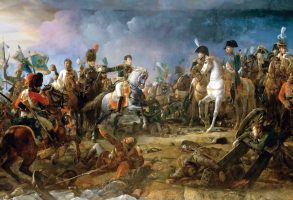
Napoleon’s latest biographer manages to do justice both to Napoleon’s achievements without flattery and to his grave flaws without invocations of totalitarian oppression or genocidal mania.
Articles
The Weekly Standard / November 15, 2018
Don Juan in Hell
Algis Valiunas
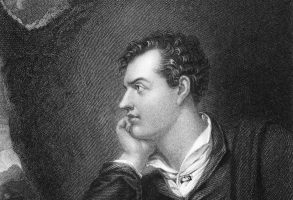
Lord Byron defined the species of Romanticism that had the most profound effect on artists and political firebrands of the era, not only in England but throughout Europe, and that has persisted into our own time.
Articles
The Weekly Standard / May 24, 2018
The Tragic Sense
Algis Valiunas

Joseph Conrad remains the greatest English language novelist since Charles Dickens, and many of the best writers of the 20th century, including H.L. Mencken, Ernest Hemingway, and T.S. Eliot, paid homage to his excellence or came under his influence.
Articles
Claremont Review of Books / May 22, 2018
Richard Feynman and the Pleasure Principle
Algis Valiunas
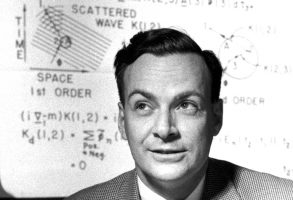
The modern world is sometimes called disenchanted, denuded of magic, because science has annihilated the invisible homeland of the spirits, where angels, demons, and God himself were believed to dwell. But Richard Feynman spoke unabashedly of the wonders and miracles to be found in nature as modern science describes it.
Articles
The New Atlantis - Spring 2018 issue / May 11, 2018
Feynman at 100
Algis Valiunas
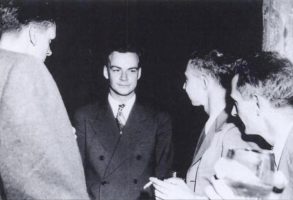
Physics was glorious play for Richard Feynman, as he declared repeatedly, and trying to make some sense of the physical world was his inborn response to what he called the wonder and miracle of Nature.
Articles
The Weekly Standard / May 11, 2018
Justice and Sorrow
Algis Valiunas
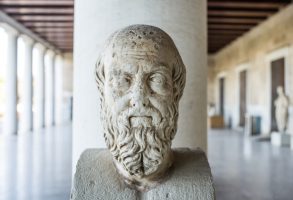
Last year or perhaps the year before marked the 2,500th anniversary of Herodotus’ birth. We can be grateful still to have his work after all these years, but his bleak teaching does not suit our time and place, which is averse to the tragic sense of life.
Articles
The Weekly Standard - January 22, 2018 issue / January 18, 2018
The Noble Goethe
Algis Valiunas
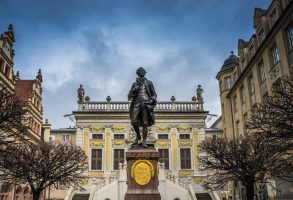
There have been very few Renaissance men since the Renaissance—and they weren’t exactly thick on the ground even in their glory days. No modern figure is more worthy of that appellation than Johann Wolfgang von Goethe.
Articles
The Weekly Standard - November 20, 2017 issue / November 16, 2017
Martin Luther’s Reformation
Algis Valiunas
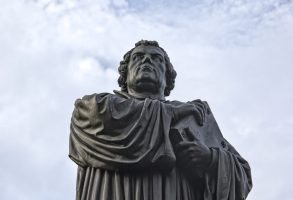
Scholars are out in force this year, observing the 500th anniversary of the Protestant Reformation with new books to commemorate Martin Luther, and to invigorate debate about his legacy.
Articles
Claremont Review of Books - Fall 2017 issue / November 2, 2017
Master Builder
Algis Valiunas

Frank Lloyd Wright was the kind of genius who recognizes no one’s excellence but his own. Perhaps such outlandish self-regard was what it took to sustain him through years of intense personal pain and drive him to become the protean creator of so much beauty.
Articles
Claremont Review of Books - Summer 2017 issue / August 1, 2017
Jane Austen: The Personal
Algis Valiunas

Happy is the reader who finds his or her way to Austen, whatever impediments might seem to block the path.
Articles
The Weekly Standard - July 17, 2017 issue / July 14, 2017
Between Heaven and Hell
Algis Valiunas
The Divine Comedy is one of the great works of humanity, but it is good to remember that this extraordinary poet never transcended the sharply circumscribed thought and feeling of human nature. Dante’s is an unforgettable poem, but before you go changing your life on its authority, you should recall that the most reliable authority on the afterlife you will ever have is yourself.
Articles
Claremont Review of Books - Spring 2017 issue / May 1, 2017
Kraus Revisited
Algis Valiunas

Vienna in the late 19th and early 20th centuries was a hotbed of genius, and the arch-journalist, poet, and playwright Karl Kraus presided over this efflorescence of art and thought, knowing everything and everybody, making all the right friends and all the right enemies.
Articles
The Weekly Standard - February 27, 2017 issue / February 23, 2017